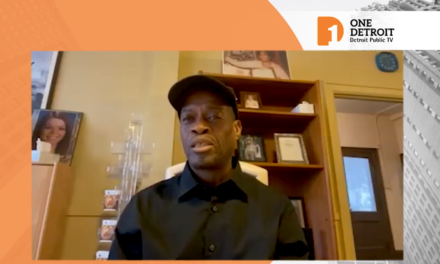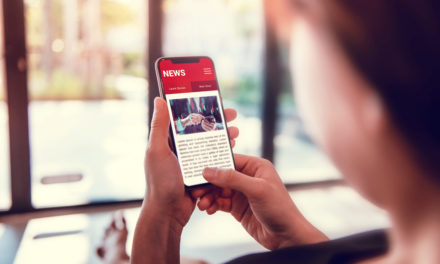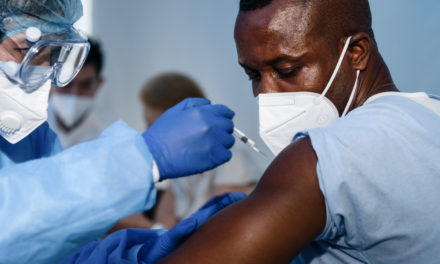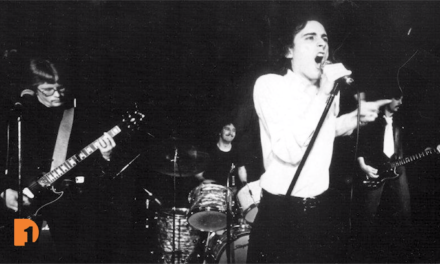Just a month ago, a health care delivery revolution was set into motion, caused by COVID-19. People are consulting their doctors by computer and smartphone because now the rules have changed.
How do you treat people when you have to stay at home?
One Detroit’s Bill Kubota looks at how telehealth is working in Detroit and around Michigan.
Read full transcript:
Dr. William Morrone: Love him or hate him, Trump said this is equal to a face to face visit. This. Because we needed people to see people.
Ewa Matuszewski, CEO, Medical Network One: What has happened is the government sat back and said we’ve got patients that need to have immediate access to their physicians so we’re going to relax those requirements and we’re going to allow for conversations to be happening over the public channels.
Ones that you and I and our children others have been using for a long time known as either Google Duo or Facetime or some of the other products that are currently available online for us to communicate with families overseas for example.
OF COURSE TELEHEALTH REALLY WAS A THING BEFORE COVID-19 – SEEN IN RURAL AREAS LIKE MISSISSIPPI IN THIS PUBLIC TV REPORT BEFORE THE PANDEMIC WHEN HIPAA RULES REQUIRED MORE EXTENSIVE, EXPENSIVE COMMUNICATIONS TECHNOLOGY.
DR. WILLIAM MORRONE HAS BEEN PUSHING FOR MORE TELEHEALTH WHILE PRACTICING ADDICTION MEDICINE ACROSS MICHGAN’S THUMB.
Bill Kubota, One Detroit Senior Producer: Now we’re looking at it happening everywhere. And it’s just 3-4 weeks ago, right?
Dr. William Morrone: Right, and it should be happening everywhere because Jesus, Mary and Joseph it’s 2020. We’ve been hearing about telemedicine for 40 years.
Crystal Coleman, Director of Clinical Services, The Children’s Center: We had to literally shut down our entire way of doing business unexpectedly and within about four days.
IN DETROIT, THE CHILDREN’S CENTER’S MENTAL HEALTH SERVICES — PRETTY MUCH ALL NOW DELIVERED BY TELEHEALTH.
Crystal Coleman: We had initially thought that we would decrease the number of people coming to our campus and then we had a meeting with our executive leadership team and it was decided it was in everybody’s best interest to just figure out how to do our job remotely.
Dr. Nathan Fitton: So you hurt your elbow….
MICHIGAN STATE UNIVERSITY HEALTH CARE QUICKLY TURNED TO TELEHEALTH.
IN EAST LANSING THEY’RE FINDING NEW WAYS NOT TO SEE PATIENTS IN PERSON.
Dr. Nathan Fitton, Sports Medicine, Michigan State University: We went from in sports medicine, we didn’t have telehealth at all it wasn’t on our radar at all and like in seven days it was live so we’ve had to adjust the way we interact with patients adjust the way we perform visits. It seems silly but for me looking at joints and how people interact and move is still very important so we have people at home that I’ll have them, spouse hold the computer while they walk around or move their knee or move their shoulder so that we can still deliver the best quality care that we’ve always delivered but just in a fashion that enables the patient to remain safe.
DETROIT AREA PSYCHIATRIST CAREY VIGOR SEES AN OPPORTUNITY WITH SENIORS.
Dr. Carey Vigor, Psychiatrist: It doesn’t seem to be a big deal as long as they have a cell phone. The great limiting factor is do they have a cell phone and then number two if they do have a cell phone do they have unlimited or enough data to be able to use the platform.
DOCTOR VIGOR HAS STARTED USING THE DOXIMITY APP WITH HER PATIENTS.
SHE CALLS IT FACEBOOK FOR PHYSICIANS.
SENIORS WITH JUST LANDLINES CAN’T USE IT SO SHE’S STARTED A NON-PROFIT HOPING TO RAISE MONEY TO BUY THEM SMART PHONES – IT’S ALL ABOUT EASE OF USE.
Dr. Carey Vigor, Psychiatrist: And then at the bottom if you can see all I do is tap video call for phone call, the patient gets a phone call, like an ordinary phone call and then they’ll see something to touch you know that says I give permission and that’s it. That’s all there is to it.
THEN THERE’S ANOTHER COMPONENT OF TELEHEALTH THAT’S EASIER — GETTING THE MONEY.
Seth Ciabotti, CEO, Michigan State University Health Care: Limited reimbursement results in limited access and that was the biggest change, the technology was always there and so now the fact that it’s paid and paid by their insurance it makes it more viable.
Ewa Matuszewski: And what happened is suddenly physicians are getting paid for the time that they are providing. If you and I are having a 15-20 minute conversation, in the past a physician would not be compensated for having that kind of encounter and yet they should be because there is medical decision-making that is occurring. Up until three weeks ago there was no payment for that. Now there is.
Bill Kubota, One Detroit Senior Producer: Are you worried that this may not continue after this COVID-19 crisis subsides?
Dr. William Morrone: I think that they will see the advance of technology saved lives and money.
STUDIES OF TELEHEALTH’S EFFECTIVENESS — THEY’LL COME, IN TIME — BUT DETROIT AREA HEALTH CARE PROVIDER EVA MATU-SHEV-SKI HAS A PLEA FOR LANSING REGULATORS, NOW.
Ewa Matuszewski, CEO, Medical Network One: The request of the governor for the State of Michigan please don’t go ahead and pull things back.
The health care community has to realize that we are going to be experiencing severe PTSD. We will not have enough behavior health folks to be able to meet the needs of those individuals that will be struggling with mental health issues.
So, it’s extremely important for us to not only maintain but perhaps enhance what it is that we currently are doing in the way of telehealth.




